February 12, 2019
I’m often asked what supplements I take, why I take them and if we really need supplements at all. After all, if you, like me, are following a healthy lifestyle, I’ll wager that you probably eat plenty of plants, prioritize sleep, hydrate with filtered (or, dare I say at the risk of wearing my tinfoil hat, structured) water and expose yourself to the sun as much as possible.
In other words, you, like me are probably what I call a “healthy, woo-woo geek”. You are an intelligent, well-informed person who embraces your softer side, spirituality and also prides yourself on being passionate about health, nutrition, science, and fitness.
So why would you need to take supplements for health, fitness, and longevity? Doesn’t nutrient-dense food, good water, and relatively clean living give you enough crucial vitamins, minerals and antioxidants?
I get the question: life is already complicated, there are a dizzying array of supplements to choose from, and the expense can add up fast, as can the clutter and confusion from eight billion bottles of capsules, tinctures, powders, oils, tablets and packets in your pantry. Things can get complex fast, and no one – including me – wants to spend their precious time counting and swallowing pills. I’ve definitely been overwhelmed by the amount of space that supplements can occupy (in fridges and travel suitcases), not the mention the time and monetary expenses of tracking and ordering new bottles.
Moreover, supplements can be dangerous. I’ve dedicated podcasts to exposing the deceptive tactics that some supplement companies employ and explored controversial fringe supplements.
So in this article, I’m going to present you with some pretty compelling information (all research-based, mind you) to support the notion that supplements can indeed amplify the benefits of your healthy, woo-woo geek lifestyle, especially if you’re a hard-charging, high-achiever like me.
Scientific Reasons Why You Need Supplements (Even If You’re Already Eating A Good Diet)
Let’s begin with this: our modern, post-industrial, polluted, toxin-laden lifestyle demands more nutrients than food can provide.
That’s right: the chronic stressors of modern life – whether it’s the iPhone screen interfering with your circadian rhythms and chronobiology or the never-ending work deadlines – increase your nutrient needs. Every day, you face hundreds of toxins – pollutants in the air, degraded plastic byproducts in drinking water, chemicals in cleaning products, and pesticides food – which further increase our bodies’ needs for vitamins, minerals, and antioxidants. These nutrients are necessary to help shuttle toxins through natural detox pathways and prevent the formation of DNA-damaging free radicals. Even exercise is a stressor that increases your body’s need for nutrients.
Furthermore, if you’re a hard-charging, high-performing exercise enthusiast (like many of the people reading this), your nutrient requirements far exceed the recommendations for the general, sedentary population. To make matters worse, you’re likely not getting the full array of nutrients from food that prior generations enjoyed. Due to modern farming techniques and fertilizers, most soil is depleted of nutrients, which decreases the beneficial vitamins, minerals, and antioxidants in conventionally-grown crops.
So perhaps eating organic is the ultimate solution? While some studies suggest that organically-grown foods contain more nutrients than non-organic, other studies conclude that there are no significant differences. Furthermore, for most of human history (and prehistory), our ancestors ate now nearly-extinct, dense cell-rich carbohydrates in the form of foods such as wild tubers, which provided essential prebiotics that helped probiotic bacteria flourish (in contrast to the refined “acellular” grains and white rice that comprise modern carbohydrates).
Along the same lines, the abundance of refined carbohydrates and processed foods creates significant blood sugar swings and glycemic variability our ancestors also didn’t deal with to as great an extent. A glance at a coffee shop display case or hotel breakfast bar that features bagels, muffins, and sugary cereals explains why many people need a snack a couple of hours later just to make it through the inevitable mid-morning blood sugar crash. Blood sugar imbalances lead to chronic inflammation and may be responsible for up to 80% of modern diseases, including Alzheimer’s disease (nicknamed “type 3 diabetes”), obesity, depression, and cancer.
Similarly, the meat, eggs, and dairy products commonly found in grocery stores deliver fewer anti-inflammatory nutrients, such as omega-3 fatty acids, than those from wild or pastured animals. Speaking of omega-3 fatty acids, most Western diet munchers consume an imbalanced ratio of omega-6 fatty acids to omega-3 fatty acids, further predisposing us for rampant chronic inflammation.
To make it even more complicated, modern harvesting, shipping, processing, and storage techniques degrade the nutrient content of food. Plants grown with modern fertilizer can contain only 25% of the micronutrients of those grown using more traditional farming methods, and nutrients degrade as they are shipped and sit on store shelves. A fresh-picked apple is more nutritious than the apples you buy at the supermarket in winter, which were likely treated with 1-methylcyclopropene and could be up to 10 months old (according to an FDA spokesperson). And the very preservatives used to maintain “freshness” could impede the bioavailability of the food’s nutrients – and increase your body’s need for nutrients to process these synthetic additives. Similarly, many common medications for acid reflux and hypertension also inhibit nutrient absorption.
Then there are precious fat-soluble vitamins such as Vitamin D. Though the recommendations for sufficient Vitamin D levels are controversial, it’s safe to say that many Americans do not get enough Vitamin D. Even if we’re doing our best to get sun exposure – whether it’s a morning walk or going outside for lunch – it’s rare to get as much sunlight (and Vitamin D) as our outdoor-dwelling ancestors did.
Last but not least, our ability to absorb nutrients from food decreases as we age. Given the scientifically demonstrated longevity benefits of caloric restriction, it seems silly to argue that one could ignore calories and simply eat more food to obtain nutrients. This is another crucial area where supplements come in – a helpful boost for those of us wanting to live longer using strategies such as intermittent fasting, alternate day fasting or caloric restriction.
Did Our Ancestors Take Supplements?
But wait! Our ancestors didn’t take any of these fringe superfoods or supplements, so why should we? False premise alert! Ancient man and woman most certainly took supplements and lots of them. As a matter of fact, humans have used some form of medicine, particularly from plants and herbs, for nearly as long as we have existed.
Archeological excavations dated as far back as 60,000 years have found remains of medicinal plants, such as opium poppies, ephedra, and cannabis. The oldest written evidence of medicinal plant usage can be found on a Sumerian clay slab approximately 5,000 years old, containing a dozen recipes for drug preparations from over 250 plants, including poppy, henbane, and mandrake (yes, the same screaming plant made popular in Harry Potter novels during Herbology classes at Hogwarts).
The Chinese book on roots and grasses “Shen-Nung Pen Ts’ao Ching,” written by Emperor Shen Nung around 2500 BC, lists 365 medicinal plant extracts, many of which are used in modern medicine, including camphor, yellow gentian, ginseng, jimson weed, cinnamon bark, and ephedra.
The Indian holy books Vedas describe treatment with numerous spice plants such as nutmeg, pepper, and clove. Around 1500 BC, the Egyptians wrote the Ebers Papyrus, which lists over 850 herbal medicines, including pomegranate, castor oil plant, aloe, senna, garlic, onion, fig, willow, coriander, and juniper.
In Homer's Iliad and Odyssey, along with the writings and works of Herodotus, we can find over 60 different Mediterranean plant species referred to, including artemisia, castor oil, mustard, and cabbage. The works of Hippocrates contain 300 medicinal plants, including wormwood for fever, garlic for parasites, opium, nightshade, and mandrake as narcotics, hellebore, and hazelwort as emetics, sea onion, celery, parsley, asparagus, and garlic as diuretics and oak and pomegranate as astringents.
Near 300 BC, the Greek botanist Theophrastus generated a classification of more than 500 medicinal plants including cinnamon, mint, pomegranate, and cardamom. In his work De re medica, the Greek author Celsus named approximately 250 medicinal plants such as aloe, flax, poppy, pepper, cinnamon, star gentian, and cardamom.
Perhaps the most prominent writer on plant drugs was Dioscorides, who, as a military physician of Nero's army, studied medicinal plants wherever he traveled. In 77 AD, he wrote the work De Materia Medica, which detailed 944 drugs, including powerful medicinal extracts such as hellebore, poppy, buttercup, jimson weed, henbane and nightshade, along with variants of domestic plants such as willow, chamomile, garlic, onion, marshmallow, ivy, nettle, sage, coriander and parsley. His writings include recommendations of chamomile for menstrual pain, sea onion, and parsley as diuretics, oak bark for gynecological purposes and white willow for fever reduction. Pliny the Elder studied under Dioscorides and also writes of nearly 1,000 medicinal plants in his book Historia Naturalis.
In the 7th century AD, the Slavic people used rosemary, iris, mint, and basil in cosmetics, along with garlic, curcumin and lavender as insect repellants. Later, in the Middle Ages, monks based most of their therapy on just 16 medicinal plants, including sage, anise, mint, savory and tansy, most of which can easily be grown in anyone’s backyard or porch. Charles the Great, Roman emperor and the founder of a famous medical school in Italy, ordered medicinal plants to be grown on state-owned lands, including over 100 different plants such as sage, sea onion, iris, mint, poppy, and marshmallow. Even today, sage is a popular medicinal plant used in many Catholic monasteries.
The Arabs used numerous plants in pharmacotherapy, mostly from India. These included aloe, coffee, ginger, saffron, turmeric, pepper, cinnamon and senna. Marco Polo's journeys across Asia, China, and Persia, along with the 1492 discovery of America, resulted in many new medicinal plants being brought into Europe for cultivation. These included cacao, vanilla, yerba mate, tobacco, cayenne, quinine and pomegranate extracts.
By the early 19th century, emerging knowledge of chemistry allowed physicians and pharmacologists to begin isolating and concentrating the active ingredients of thousands of known medicinal plants into many of the same vitamins, powders, tinctures, oils, teas and salves that now appear in present-day pharmaceutical drugs and supplements, including aspirin (from willow bark), digoxin (from foxglove), quinine (from cinchona bark), morphine (from the opium poppy), and, as you’ve discovered shortly, metformin (from the French rue) and rapamycin (from soil-based probiotic chemicals).
The Animal World Takes Supplements Too.
Even the animal world supplements and self-medicates.
For example, what do orangutans do when their arms and joints hurt? They chew the leaves of a local plant called Dracaena cantleyi, then rub the resulting anti-inflammatory paste onto the painful area as a healing salve. Dog lovers may be familiar with the grass-eating habit of our canine friends, which is a strategy used to soothe their upset stomach by eating indigestible plant material to address gastrointestinal upset and to purge their system of worms, nematodes, and other parasites.
Parrots and macaws eat clay to aid digestion. Lizards feed on roots to counteract snake venom. Pregnant lemurs have discovered a lemur version of prenatal vitamins and select certain leaf species that aid in milk production and labor. Brazilian spider monkeys consume fertility-enhancing and contraceptive plants. Sparrows have discovered at some point that nicotine residue can control parasitic mites and have been known to incorporate cigarette butts into their nests.
As a matter of fact, self-medication among animals has been so widely observed that it even has an official name: zoopharmacognosy.
Summary
In the past year, as you can read about in great detail here, I’ve translated the knowledge gained from years of reading, researching and experimenting to create a line of new formulations and supplements for my company Kion – supplements that satisfy my own strict standards for quality and “scratch my own itch” as products that I personally use, endorse and take myself every day.
My goal in creating the Kion supplement line – for both the existing products and some extremely unique formulations that I’m currently developing using some of the best raw ingredients on the face of the planet – was to merge the best that modern science and ancient wisdom have to offer to enable you to optimize your body and brain. For the Kion supplements that can discover and read more about here, I personally sourced each ingredient, designed optimal ratios, and controlled the manufacturing processes to ensure the highest purity, potency, and value.
So what supplements do you take?
Do you think supplements are unnecessary?
Do you have questions, thoughts or feedback for me about supplements?
Leave your comments below and I will reply!

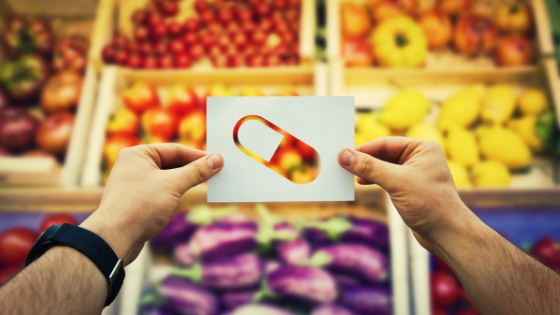

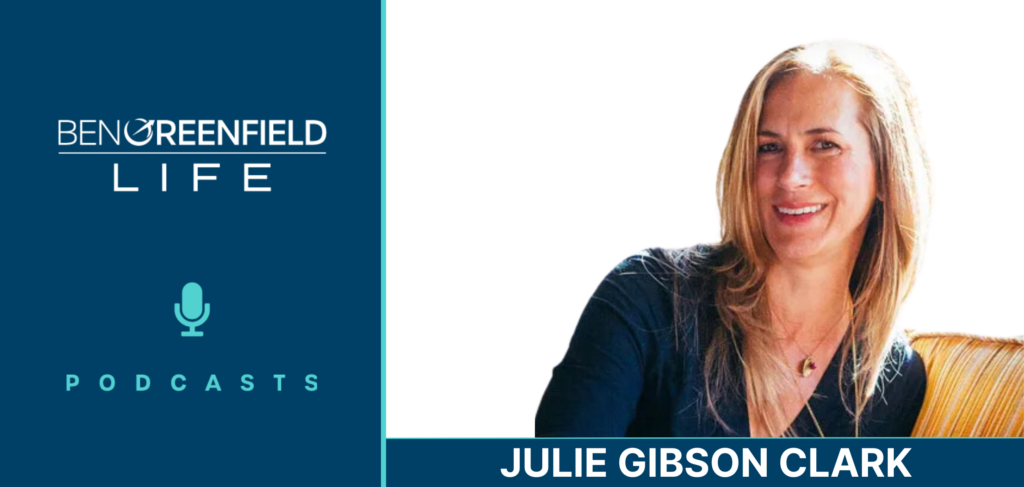


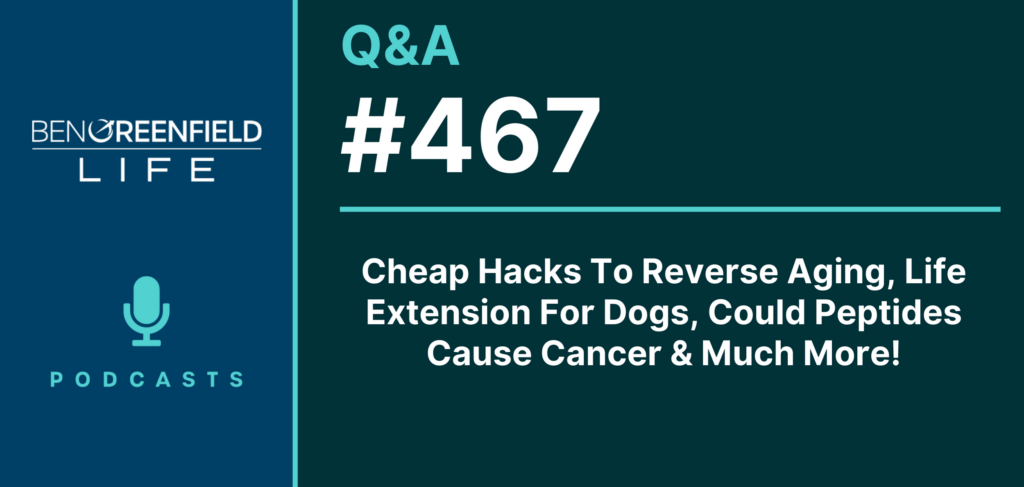

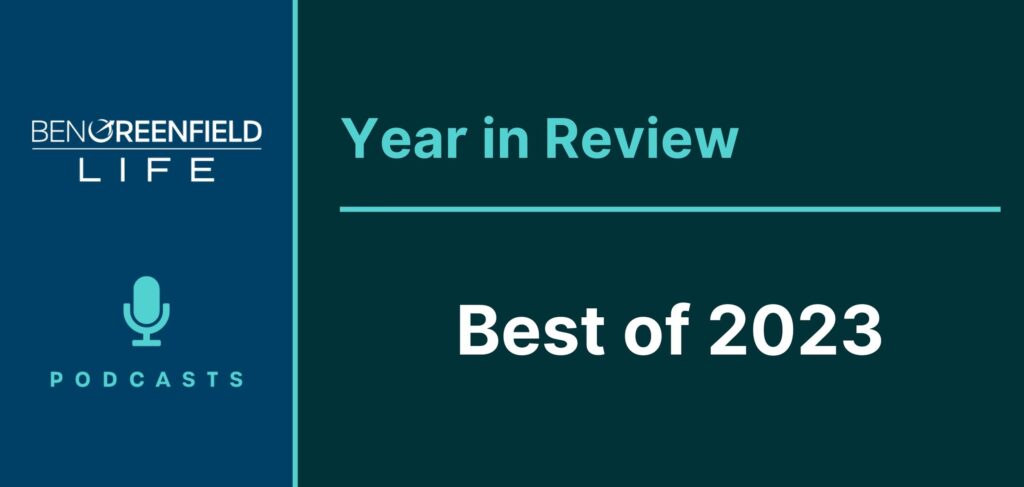
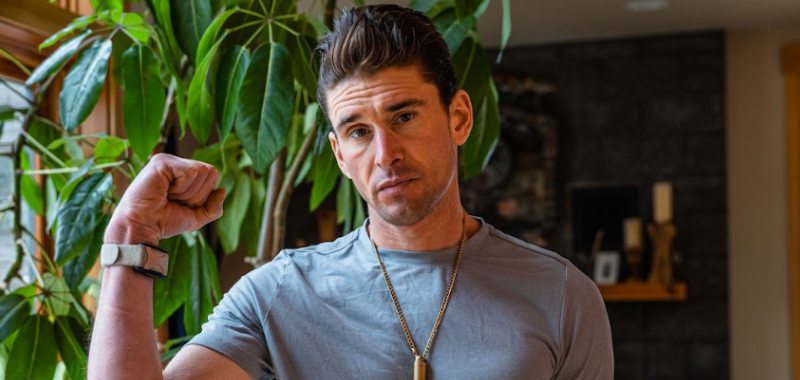

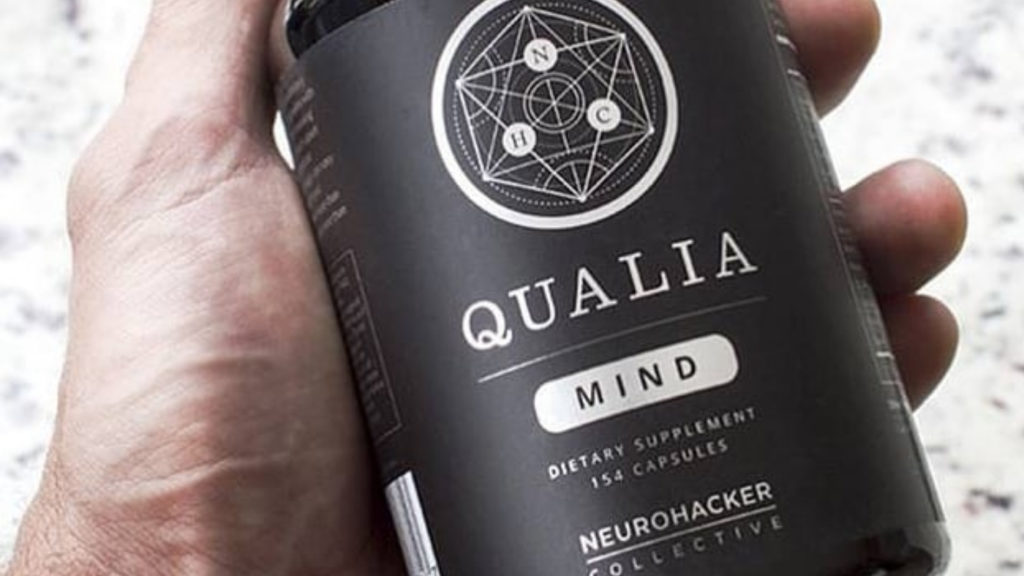
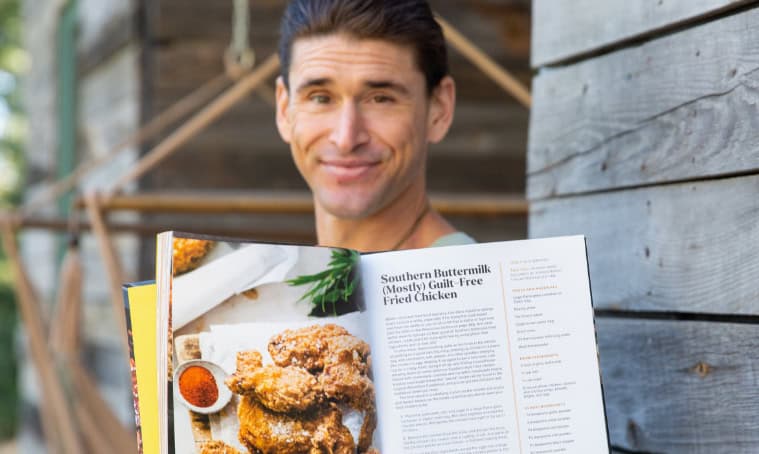

Thank you for your material, I think that taking various supplements or vitamins is always useful. It doesn’t matter if you are constantly engaged in fitness, or just want your body to get more. I often read these recommendations for myself on the site https://samsonsteroidsuk.com/ and I’ve already found some good supplements for myself
Hi Ben!
Great stuff!
So what would you recommend for those who often have to spend a few months at a time living in nutritionally-austere places (eg military bases, 3rd world) with no real access to fresh foods? I tropically try to take some clean protein and greens supplements with me (as well as fish oil/whole food multi vitamin), which seems fine but after a few weeks def feel less than par, especially as am getting older. What am I missing? Going on years of this routine. Welcome guidance for the long haul :)
Really could be a number of things… Long-term deficiencies can lead to issues with hormones, mitochondria, etc. Might be a good idea to some testing like the Longevity Panel I worked on with WellnessFX or a full hormone analysis like the Dutch test… Something like the Clean Energy bar would be great in a scenario where you're consistently on the move, in tough conditions, etc. EAAs could be great too.
Thanks for the awesome read! I’m 33 and have always been very active with competitive running, lifting and swimming. I’ve had to take a big halt due to a knee injury. After surgery scoping they found damaged cartilage under my patella and tried to smooth it out but it didn’t help. Im Five months post surgery and still in ton of pain. I’ve had additional cortisone shots and gel shots and nothing is working Any suggestions on supplements to help joints? Collagen, proteolytic enzymes, glucosamine and chondroitin? Anything else or particular brands you recommend? There are SO many out there it’s hard to know the quality of the product. What do you think of stem cells for joint cartilage issues?
I am not a doctor and this is not to be taken, interpreted or construed as medical advice. Please talk with a licensed medical professional about this. These are just my own personal thoughts and not a prescription or a diagnosis or any form of health care whatsoever. I would check out Kion Flex, which is formulated for for joint comfort, mobility and flexibility, and bone health support. https://getkion.com/shop/body/kion-flex/
Also a great question for the Kion Community. Facebook.com/groups/GetKion
Morning: Kion Flex on empty stomach (I have arthritis I feel it helps to overcome stiffness)
Later in the morning: half daily dose of the flowing – fermented multivitamins, fermented D complex, fermented B, Ph complex, MagSRT, fermented prebiotic.
Midday prior to workout: Kion Aminos
Late afternoon: fermented turmeric with some mct
Before dinner: second half of the vitamins and minerals.
Before bed: fermented holy basil, frankincense
Essential oils via defuser, and BioCBD vape throughout the day. BioCBD is a real deal, thanks for the lead, Ben!
I’m still on the fence with enzymes. Studies and opinion out there are conflicting! I think Bromelane is good for me, some others – not so much. Tried Masszymes, gained weight, was constantly constipated. Will try various types separately to see what’s working. Any good read on that? Thanks!
Hey Ben! Curious to know what you think about Dave Asprey’s supplement recommendations. Been following him for a while. I put you and him on the same hardcore stratosphere when it comes to health. Thanks
I'm not really all that familiar with his supplement recommendations.
Ben, what about B complex. Do you take them and what do you recommend? And NADH?
Is there any particular reason you don’t take resveratrol?
Hey Ben, enjoying your work, big thanks for all your efforts. Was wondering if you have any supplement recommendations for a testicular cancer survivor or research you would recommend me reading?
Nourishing herbal infusions, everyday!
I’ve been taking supplements since 1969. As of 1989, I don’t take any supplement, that I took before, 1989. It took me awhile to figure it all out, but, I haven’t been sick in almost 30 years, not even a cold. I do know the supplements, my body, uses an needs. And I also know the supplements that every body needs. Except for MS. And I’m working on that. As I think MS has to do with too much iron. in the brain. So, if you have MS & are reading this, have a Altra-Sound on your head an brain. Most people don’t know that 70& of our immune system, is, in our digestive system. Or that our stomach & thyroid work together. I’m 71 years old & I’ve been around the block, but, I still have done my research. And it still takes more than supplements & research, to get as far as I have. It took me 60 years to see the light. And on my 5th miracle, ( all are unbelievable ) I had to stop thinking it was me. God, gave us Jesus. So, anyone can believe, but, it’s “Faith” that you have to have. If you can’t grow with us, then you can’t go with us. You have to be, or, get real, before it happens.
Hey Ben, thank for the consistent articles and podcasts helping all of us take a few more steps toward super human.
I am currently taking:
Animal Pak (thoughts?) and fish oil in the morning with first meal around 10a/11a
-Melatonin and vitamin D3 in the evening around 8:30pm/9:15pm (does time of day for Vitamin D make a difference?)
And cutting back on the nootropic after listening to one of your recent podcasts. (Lions Mane and/or Alpha Brain)
Trying to re-budget my supplements to have the amino blends, then if budget allows, add the creatine. I am an avid rock climber and yoga enthusiast with weight lifting mixed in throughout the week. Feeling, given my active lifestyle, I am covering all my bases, but know there is always room for improvement. Thanks for reading.
I gave my review of Animal Pak back in the day: http://hwcdn.libsyn.com/p/0/0/e/00e6e1463667a7ea/…
Much love, thanks Ben!
I take Kion colostrum daily (2 tablets first thing in morning). I heard you recently talk about how you cycle colostrum. Can you share how and why? Big fan of the show. Thanks
Sure thing check out this article: https://bengreenfieldfitness.com/article/digestio…
Here's a great resource: https://goo.gl/BK4zNy
OK, case made that supplements can be useful. But Ben, I don’t think you answered the question as to what supplements you yourself take. Certainly you’ve talked about and promoted (via affiliate links) quite a few over the years. Which have you stuck with?
Morning: creatine, fish oil, glutathione, NR
Pre-meal: digestive enzymes, bitter melon extract
Midday: aminos, NR
Night: CBD, magnesium
Sometimes: colostrum, anti-inflammatories like curcumin
Sometimes: nootropics like lion’s mane
When traveling: multi-vitamin, probiotics
Curious about NR. Are you not really taking that anymore?
NR is still part of my protocol. http://bengreenfieldfitness.com/truniagen
Can chlorella and spirulina substitute for fish oil, and if so how much?
You might be interested to read this, actually: https://purathrive.com/difference-fish-oil-algal-…
Is glutathione even absorbed?
I use AlmsBio which optimizes glutathione delivery method: https://almsbio.com/discount/BenGreenfield10
A multivitamin, Resveratrol, Krill Oil, Mag SRT for magnesium supplementation, 3000 IU Vitamin D3, 1200 mg Soy Lecithin, 420 mg Phosphatidylcholine is what I’m currently using on a daily basis. The extra D3, Phosphatidylcholine and Resveratrol I’m using after I ran my 23me data through Foundmyfitness.com .
I also use Chronometer religiously and add extra Omega 3 on days where my 6-3 ratio gets too high.
Does it make a difference? Who knows. If anything it keeps me focused on my health and longevity.
Thanks Ben for all you do. Looking forward to additions to your Kion line so I can continue to help support you.
Brian/Ben,
new to this site, and starting to get my gut and overall fitness back on track.
i realize neither of you are doctors, but I appreciate your input!!
I’m 51, and have had Psoriatic Arthritis for 16 years (auto-Immune). damned and determined to either put it in remission, or kill it all togethers (doctors say impossible, I say maybe/ maybe not).
fairly active in hiking, working out…etc
I currently take Remicade for the auto-immune, but feel all of this may be able to be eliminated with diet and lifestyle change as well as paying particular attention to inflammatory markers and responses.
curious as to which brands your using of the supplements, and is it all Kion stuff or have you mixed and matched based on experimentation.
sounds like it may have been as a result of your 23 and me testing, if so, which tests would you recommend?
Ben/Brian, which tests would you recommend from 23 and Me? especially since auto immune is involved.
thank you for any and all response!
JT
I recommend starting with these two podcasts: https://goo.gl/tj5ZZH and https://goo.gl/oyiqrQ
The Supplement world is the wild west. Unchecked and exaggerated claims abound. Probably 90% or more of supplements consumed in the US are at best doing no Harm. Ben helps cut through the chaff and educates the audience so informed decisions can occur. His constant quest to uncover ALL available knowledge leads to superior decisions. This translates directly to his audience. I have known Ben for 10 years now and I know that he entered into the supplement world for the right reasons. Providing well researched and sourced supplements that make a difference.
This post is golden, thanks man. Will be sharing it with my fellow biohackers.
Thank you
Thank you for the links to the research articles!
Part of why I follow you, Ben, is you’re a good writer. Nice article. Thank you for being grammatically correct and structurally sound, and for providing citations/back up for your ideas.
Thanks!
The older I get the more important my supplements become
I concur.